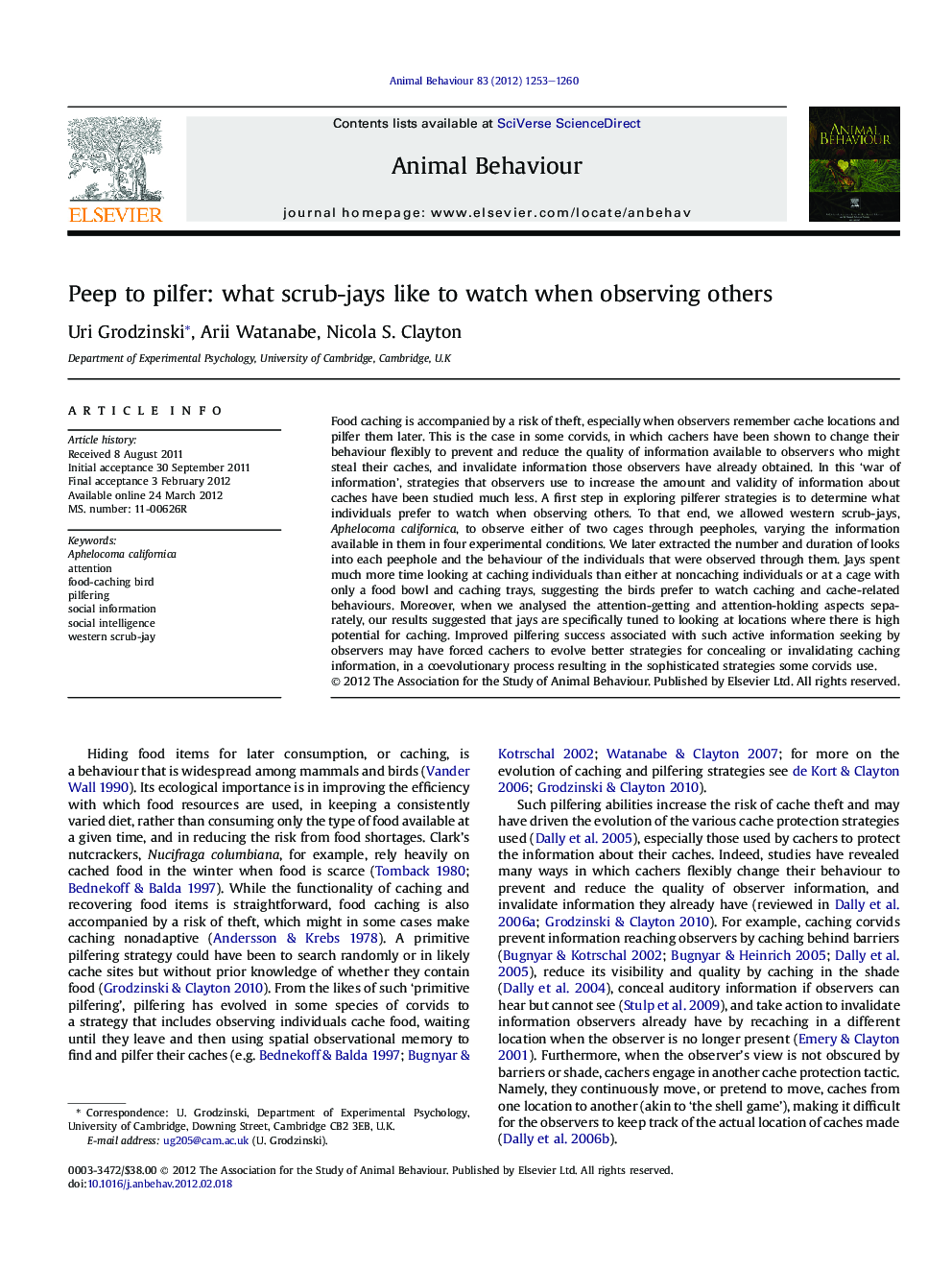| Article ID | Journal | Published Year | Pages | File Type |
|---|---|---|---|---|
| 2416902 | Animal Behaviour | 2012 | 8 Pages |
Food caching is accompanied by a risk of theft, especially when observers remember cache locations and pilfer them later. This is the case in some corvids, in which cachers have been shown to change their behaviour flexibly to prevent and reduce the quality of information available to observers who might steal their caches, and invalidate information those observers have already obtained. In this ‘war of information’, strategies that observers use to increase the amount and validity of information about caches have been studied much less. A first step in exploring pilferer strategies is to determine what individuals prefer to watch when observing others. To that end, we allowed western scrub-jays, Aphelocoma californica, to observe either of two cages through peepholes, varying the information available in them in four experimental conditions. We later extracted the number and duration of looks into each peephole and the behaviour of the individuals that were observed through them. Jays spent much more time looking at caching individuals than either at noncaching individuals or at a cage with only a food bowl and caching trays, suggesting the birds prefer to watch caching and cache-related behaviours. Moreover, when we analysed the attention-getting and attention-holding aspects separately, our results suggested that jays are specifically tuned to looking at locations where there is high potential for caching. Improved pilfering success associated with such active information seeking by observers may have forced cachers to evolve better strategies for concealing or invalidating caching information, in a coevolutionary process resulting in the sophisticated strategies some corvids use.
► Theft of food-caches causes a ‘war of information’ between cachers and observers. ► A set of peephole experiments show scrub-jays specifically prefer to observe caching. ► Surprisingly, potential for caching triggers the observers' interest, not caching per se. ► Such active information seeking may cause sophisticated social strategies to evolve.
